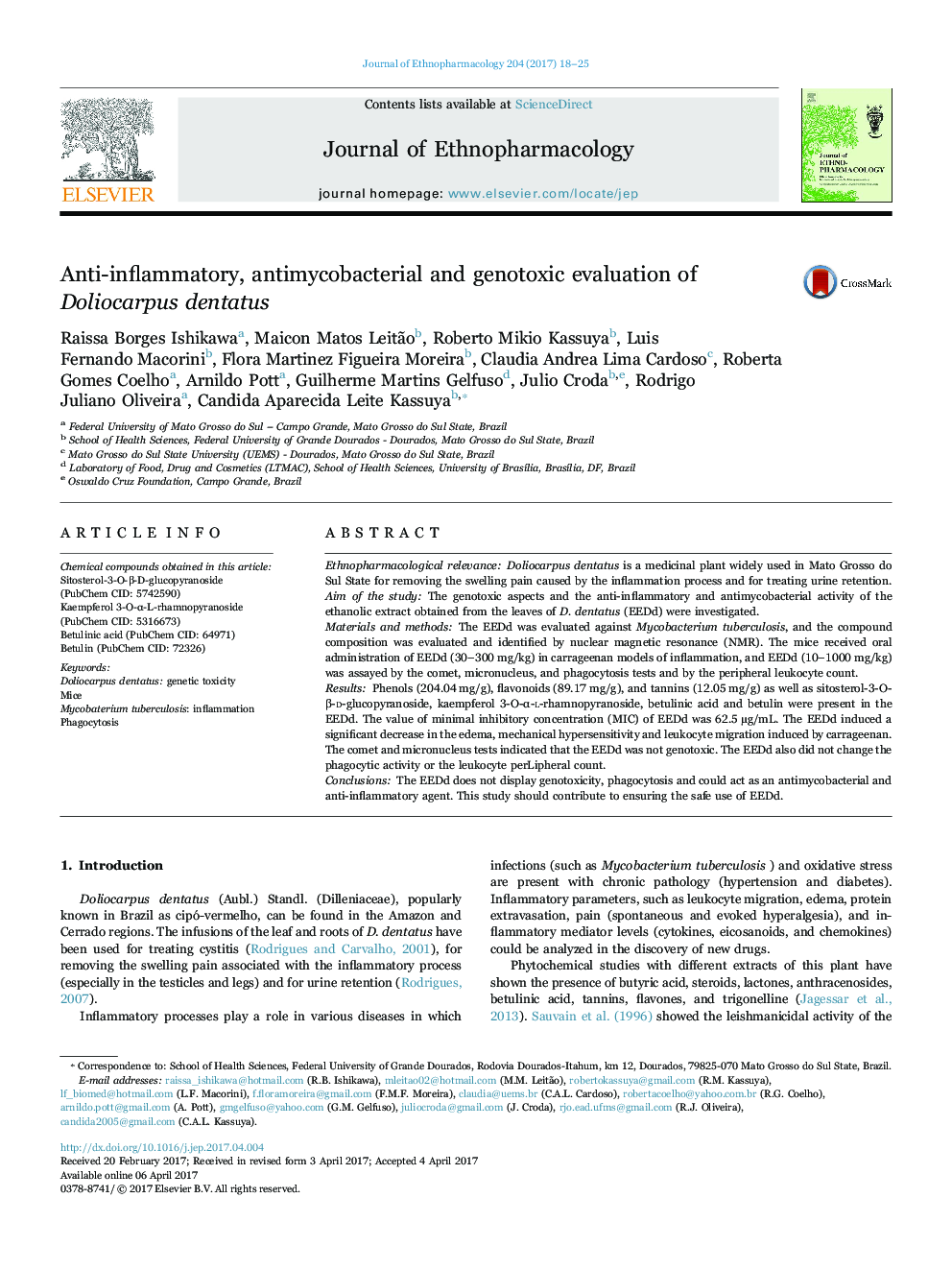| Article ID | Journal | Published Year | Pages | File Type |
|---|---|---|---|---|
| 5556249 | Journal of Ethnopharmacology | 2017 | 8 Pages |
Ethnopharmacological relevanceDoliocarpus dentatus is a medicinal plant widely used in Mato Grosso do Sul State for removing the swelling pain caused by the inflammation process and for treating urine retention.Aim of the studyThe genotoxic aspects and the anti-inflammatory and antimycobacterial activity of the ethanolic extract obtained from the leaves of D. dentatus (EEDd) were investigated.Materials and methodsThe EEDd was evaluated against Mycobacterium tuberculosis, and the compound composition was evaluated and identified by nuclear magnetic resonance (NMR). The mice received oral administration of EEDd (30-300 mg/kg) in carrageenan models of inflammation, and EEDd (10-1000 mg/kg) was assayed by the comet, micronucleus, and phagocytosis tests and by the peripheral leukocyte count.ResultsPhenols (204.04 mg/g), flavonoids (89.17 mg/g), and tannins (12.05 mg/g) as well as sitosterol-3-O-β-D-glucopyranoside, kaempferol 3-O-α-L-rhamnopyranoside, betulinic acid and betulin were present in the EEDd. The value of minimal inhibitory concentration (MIC) of EEDd was 62.5 µg/mL. The EEDd induced a significant decrease in the edema, mechanical hypersensitivity and leukocyte migration induced by carrageenan. The comet and micronucleus tests indicated that the EEDd was not genotoxic. The EEDd also did not change the phagocytic activity or the leukocyte perLipheral count.ConclusionsThe EEDd does not display genotoxicity, phagocytosis and could act as an antimycobacterial and anti-inflammatory agent. This study should contribute to ensuring the safe use of EEDd.
Graphical abstractDownload high-res image (150KB)Download full-size image
